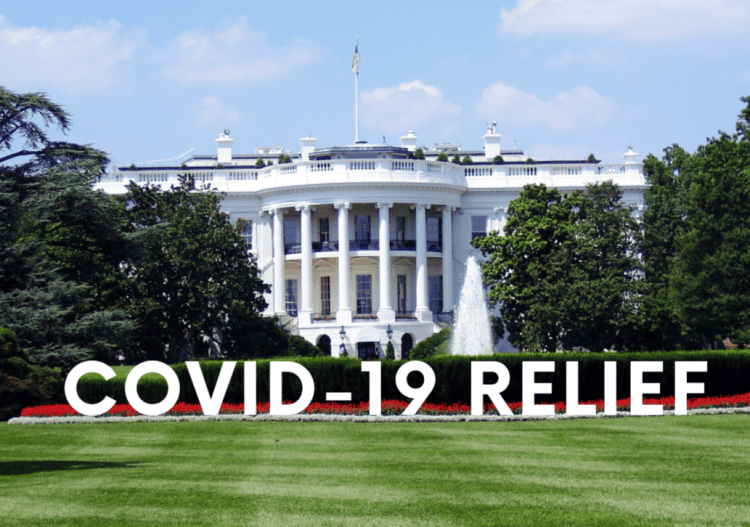Congressman French Hill released the following update Monday, December 28th on what’s included in the COVID-19 relief:
Last Monday, the House of Representatives and the Senate came together and passed the Consolidated Appropriations Act. On Sunday, President Trump signed this bill into law. This legislation includes a COVID-19 relief package, as well as a separate bill to fund the government.
This long-awaited targeted COVID-19 package is the result of a bipartisan effort by my colleagues on both sides of the aisle to provide the workers, small businesses, families, and people of Arkansas with much-needed relief.
The annual FY2021 bill serves to fund critical government projects and programs. More specifically, this provides yearlong funding for infrastructure, education, national security and defense, and many other crucial government projects and programs.
The COVID-19 element of the bill extends the Paycheck Protection Program, provides unemployment relief, issues Economic Impact Payments, and serves to bolster the economy and direct aid to our families, small businesses, and hard-working Americans.
On Saturday, I spoke with Fox News’ Alicia Acuna about why I supported this bipartisan legislation and how it will give the American people and the American economy much-needed support during these difficult times.
In response to the challenges created by COVID-19, this legislation specifically will:
Bolster the Economy:
- $325 billion for small businesses, including $284 billion for first and second forgivable PPP loans, dedicated set-asides for very small businesses and lending through community-based lenders like Community Development Financial Institutions and Minority Depository Institutions, and expanded PPP eligibility for 501(c)(6) nonprofits, including destination marketing organizations, and local newspapers, TV and radio broadcasters.
- $20 billion for new EIDL Grants for businesses in low-income communities.
- $15 billion in funding for entertainment venues, movie theaters, and museums that are experiencing significant revenue loss.
- Expands list of eligible expenses to include covered operations; property damage costs that are not covered by insurance; covered supplier costs; and covered worker protection expenditures (PPE). PPP borrowers will be allowed to take tax deductions for covered business expenses.
- $13 billion to support farmers and the agriculture sector, including assistance under the Coronavirus Food Assistance Program (CFAP) and funding directed to programs that support local producers and new and beginning farmers.
Support Working Families:
- Economic Impact Payments of $600 for individuals making up to $75,000 per year and $1,200 for couples making up to $150,000 per year, as well as a $600 payment for each child dependent.
- $286 billion for an additional $300 per week in unemployment insurance through March 14.
- $25 billion for rental assistance (to be distributed through state and local agencies) and an extension of the CDC eviction moratorium through January 31, 2021.
- $69 billion for vaccine procurement and distribution and monies sent to states for testing, tracing, and COVID mitigation programs.
- Incentivizes employers to give employees $5,250 per year toward their student loans. Employees will no longer have to pay a tax on the amount given towards their student loans for the next five years.
Provide Flexibility for our Governors:
- State and local governments will now have until December 31, 2021, to spend aid provided by the CARES Act.
- $7 billion total in broadband funding
- $2 billion to replace foreign-manufactured equipment
- $300 million for rural
- $250 million for telehealth
- $82 billion for aid to schools and universities, including K-12 and higher education.
- $20 billion for the purchase of vaccines that will make the vaccine available at no charge for anyone who needs it, $8 billion for vaccine distribution, and $20 billion to assist states with testing.
Last week, the Arkansas Department of Health laid out their detailed plan for the vaccine distribution process.
Phase 1 is set to have 3 waves of distribution:
Phase 1-A
Target: Health care workers in high-risk settings and people at significantly high risk for severe disease due to underlying health conditions. Hospitals will be ranked by their number of employees and number of COVID-19 cases.
- Hospital on-campus employees and staff in high-risk settings or performing high-risk procedures on confirmed or suspected COVID-19 patients
- Hospital off-campus employees and staff in high-risk settings or performing high-risk procedures on confirmed or suspected COVID-19 patients
- First responders (EMS, fire, and law enforcement) at highest risk to suspected or confirmed COVID-19 patients via high-risk public exposure and procedures
Phase 1-B
Target: Essential workers.
- K-12 school employees including teachers, aides, janitorial, bus drivers, and other staff (who cannot teach or work remotely)
- College/university faculty & staff (who cannot teach or work remotely)
- Daycare employees
- Grocery store workers
- Meatpacking plant workers (particularly poultry)
- Essential DHS & DWS offices (those who cannot work remotely)
- State correctional workers (who cannot work remotely)
- Jail/detainment facility workers
- Truck drivers
- Utility workers (who cannot work remotely)
- Public-facing postal workers
- Essential government workers
Phase 1-C
Target: People at high risk for severe disease.
- Adults of all ages with high-risk medical conditions (chronic disease)
- Adults 65 years of age or older
- Adults with intellectual or cognitive disabilities
- Adults who are incarcerated or detained
- Adults living in group homes, congregate settings, or in crowded settings
For more information about COVID-19 vaccines, visit the Arkansas Department of Health’s website.



